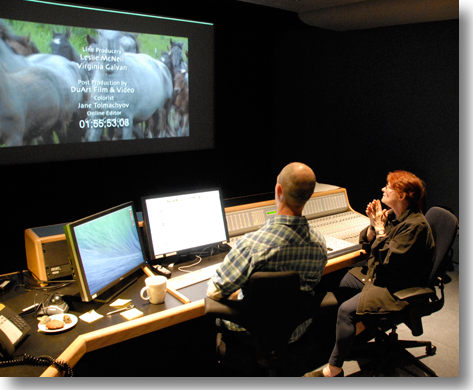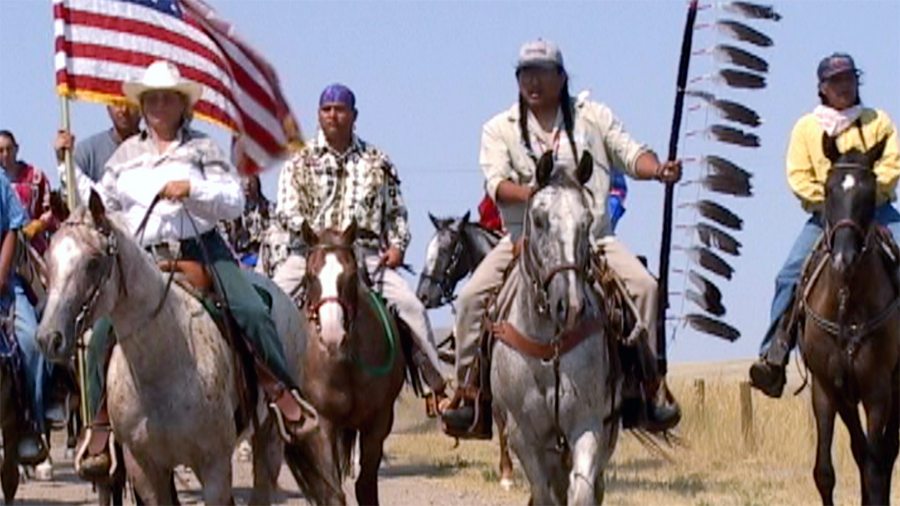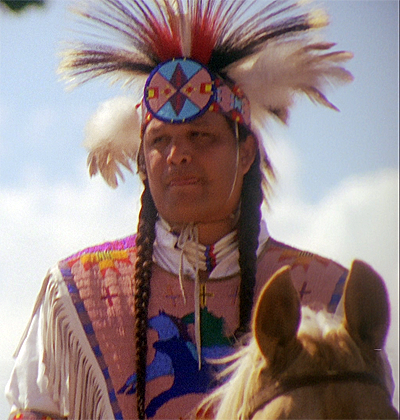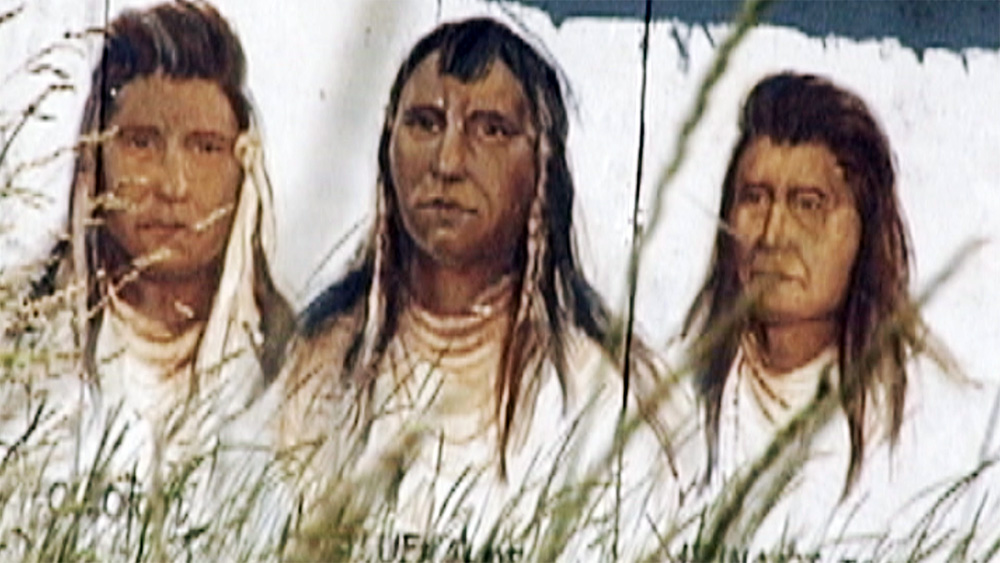The Film
DIRECTOR'S NOTE

A note from the director and producer - Janet Kern
Horses brought me to this story. As 8-year-olds living in Yonkers, NY, my best friend, Susan, and I watched Gene Autry on ...and Roy Rogers on Trigger, as they rode to the rescue over and over.
I eagerly took riding lessons every summer vacation in the Pennsylvania Poconos, but reluctantly continued as a teenager from a blue collar family faced with exclusion from the clique of wealthy girls wearing expensive boots and jodphurs.
In college I took riding lessons to fulfill the phys ed requirement, and rode for hours after classes on the unfinished, still-dirt Ohio interstate, sweet relief from the rigors of a double major in political science and philosophy.
After college, I saved my wages as a NYC film technician and bought my first horse -- a chestnut and white "blanket" Appaloosa named Gorgeous Georgie O'Keefe, who lived in a corral behind my mother's forest cabin.
With him, I came to know the mountain in all seasons.
When I finished my first documentary ("Begin With Me," about the Cold War) and was seeking the next project, I saw an article in The New York Times titled "Tribe Known for Horses Sees Future in Them."
All the horses I had loved, and all the things I
had studied, came together.
The learning curve about Native American society and sensibilities has been a steep one for me. The more I learn, the more I realize I do not know.
We began work on "Horse Tribe" in 1998, expecting to finish in 5 years.
Although it sure didn't feel that way at the time, funding difficulties delayed editorial completion -- and coincided with a radical change in the storyline.
I kept shooting.
We'd set out to portray children and society flourishing in the company of horses, and ancient equestrian culture adapting to modern purpose. We bore witness to a saga of vision and grit, a community in conflict, a man in crisis, and a beloved herd at risk.

Every documentary producer finishes a project with at least three films: the one envisioned, the one completed, and the one that got away. I miss what we couldn't include: storylines that diffused the narrative, moments unrecorded because of equipment failure or arriving too late. Audiences viewing "Horse Tribe" cannot, of course, miss the absent things. But they are always in my head. As are exquisite personal revelations: that simply holding the halter of a skittish horse on a windy hillside so that the rider could saddle up would lead to a critical endorsement of character, and that sitting fully clothed in a cool river on a sweltering day with a silent elder would lead to friendship. That the horses, no lie, know the songs.
The inexplicably generous instincts of a people who have experienced incomprehensible loss is a lesson, a mystery, and a gift to me.
I am privileged to have been among the Nez Perce.

Consider:
For the average American, Indians have been positioned on the spectrum of our national imagination somewhere between romance and remorse, simultaneously deep in the heart and at the farthest margins of our consciousness. As icons, as stereotypes.
HORSE TRIBE portrays individuals of recognizable dimension who dream big, succeed, stumble, and strive on, embodying the soulfulness and dramatic tension inherent to the human condition and to every memorable story.
Aristotle defines happiness as “the exercise of vital powers along lines of excellence, in a life affording them scope.” The Nez Perce and Rudy Shebala engaged in such a quest.
The ephemeral, potent, grounding power of Tribe, contrasted with the relative context-less individualism so prized in the mythic “American character.” is notable. And in the largest sense, during our own dangerous days of shrill rhetoric about tribalism, empire and honor, the survival of this multicultural world could depend on the veracity and breadth of our understanding of one another.

Horses – perhaps the most beautiful and beloved of earth’s creatures – carry viewers to the many philosophical and sociological issues raised in HORSE TRIBE.
~ Whether in the Pacific Northwest or, by extension in the Middle East, a culture can productively embrace a force that has engulfed it.
~ Does otherness dictate estrangement? Can a minority displaced and overwhelmed by a majority ever truly be part of the whole, from the
perspective of either entity? Is assimilation a positive?
~ Is racism an unavoidable part of human nature?
~ What should we make of the “faith of our fathers”, e.g., warriors impervious to bullets… or a man who can walk on water? Are these stories hokum,
allegorical, or however improbably, true?
~ What happens when spiritual practices wither? If Nez Perce youth no longer seek their weyekin spirit, will that alter in a meaningful or practical
way how the next generation relates to the world?
~ Is there a human obligation to protect our planet’s natural resources or its other species?
~ What defines a hero? Who are yours?
~ What are the costs of trying, and the lessons of failure?
~ Is it good, or not so much, to live in a place where, literally, "everybody knows your name" (and your parents, grandparents, and great-
grandparents too?
This documentary portrait of the glory, decline and re-invention of the Nez Perce horse culture -- and the parallel experience of one extraordinary man – give living form to the grand abstractions of intellectual discourse. Concepts are without form. But the ineffable resides in the actual, the shrouded in the apparent, and transcendence in the commonplace. Amidst the grandeur of the Pacific Northwest, on a hardscrabble reservation where daily lives are a fugue of grief and gumption and grace, foals are being born.
